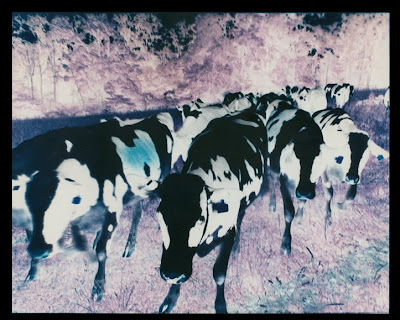After quitting Paris Island in 1996, taking a nap, and waking up in Long Island on 9-11, I realized that the people of which I was a part were poorly equipped to handle, even understand, the exigencies of the world and planet upon which we live. Americans tend to live upon the world, and are seemingly unaware of the planet they’re on. I am aware of the problem with this generality (“American”) but I am talking about a gross systemic relation, rather than its aesthetic valuation. We live as a dream and slurp our news from a crock of shit and you really have to dig to scratch the surfaces. As an American, I am not exceptional; I suppose that, and I hate to admit this, like everyone else who grows up here, it took me a while to remember it.

HOW HAS THE GREAT RECESSION AFFECTED YOUR POETRY?
Like any laborer worth his salt I’ve attempted to cultivate my own situations in which I might quit anything and everything without consequence. My art becomes life, stains; “consequences” aside, they’ve proven extremely adept. Hell, successful. Thus my slurp has been unaffected by this “recession” you refer to. The fact that we suffer in silence is at least a meaningful currency, sans coasters, for we are used to it.
What I mean is, there are several thousands of us on the Niagara Frontier who look at the Erie Canal from what was once the widest bridge in the world. Have we seen what gets trapped in this leg of the Canal? Acreage, rusty, an agricultural engineering marvel draining a prehistoric puddle of its fruit picked and packed here, a heavily fertilized contract with eventualities and elsewhere, just east of the toxic nightmares across from Canada—feed corn and the species problem, simplified. South of us Erie County sprawls around Buffalo, where the Canal ended.
Nothing is bleak about its stained signs.

PLEASE SHARE A POEM(S) ADDRESSING YOUR GREAT RECESSION EXPERIENCE.
17-18
to cultured inurement a catastrophic event
and old news
A. that they should do more as it tries to hammer out a draft raised the possibility of a range of actions, including but not limited to B. inherent limitations in terms of protections C. hopes to see a serious draft by Thursday or D. to approve this draft it E. would soon attack, to support and clean the city, your protective shield stay away, about thirty kilometers, outside your city they have F. been fighting in that direction for several days, television claimed they were in control of it, but journalists at the gates of the city saw G. no evidence it had fallen, hearing some say, telling others, they were fighting inside H. there was no way to confirm that claim, heavy bombardments there Wednesday I. thousands of forces gathered late outside, Wednesday, with dozens of heavy artillery, radar control weapons systems and about a dozen tanks, weapons J. carried by what appears jubilant and confident K. with white pickups covered in dirt for camouflage purposes snipers were positioned in various parts of the city, excellent vision L. and if it is taken by force, it will give access to what leads to the heart of the opposition M. it was bombing its way into the city, Wednesday N. if all (there) are dead by the end of the day they’ll call it a cowardly, murderous attack, people are not safe, it’s amazing this is happening, adding that two O. people killed, fifteen injured, and one very critically P. forces not yet able to get in described it, a forty-six year-old engineer and member of the local opposition, a rebel fighter with no weapons, fighting with whatever arms Q. are found, or captured R. the best we have, grenade launchers S. the journalist there has not been able to confirm the account but a second witness also said the city has come under sustained attack, on Wednesday T. meanwhile four journalists, covering the conflict, are reported missing U. Wednesday, the editor says they received, second-hand, news that some of the team was swept up, by forces near the city, who’d say V. that there’s nothing to say about them, who said W. that if they have picked them up X. then they should have been brought back Y. the battle, to recapture the rebellious territory, came on the day we considered closing the air, Wednesday Z. ends with no agreement on a draft
there are plenty of others to offer u2, we could repeat these here, the largest Moon in twenty-five years or so and visible on Saturday or the Gulf disaster from last year, or the way even this story has changed, where “spill” becomes an operative word, of which I prefer to Katrinas, Dubyas, a form of Exodus through Egypt perhaps like one of the Four Fukushima Reactors, my sister’s New International Version predicting Haiti’d turn out like China the Orientalist, come to blame the Currency, explains a trace of the Zombie away to a Pharmakon of leaves, the locations like a symbol would just have to show itself, and even though the Japanese can still gather in their peaceful breadlines, or relinquish it in the oceans, having experience with this sort of Thing
ABOUT THE POET & ARTIST:
Jared Schickling lives in upstate New York.
Alec Maslowski is a visual artist and musician living in upstate New York.
'
No comments:
Post a Comment